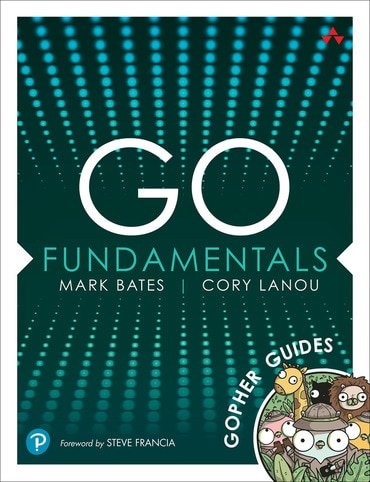Switch content of the page by the Role togglethe content would be changed according to the role
Go Fundamentals: Gopher Guides, 1st edition
Published by Addison-Wesley Professional (December 3, 2022) © 2023
- Mark Bates
- Cory LaNou
eTextbook
$36.79
$31.99
Need help? Get in touch

Digital Learning NOW
Extend your professional development and meet your students where they are with free weekly Digital Learning NOW webinars. Attend live, watch on-demand, or listen at your leisure to expand your teaching strategies. Earn digital professional development badges for attending a live session.

